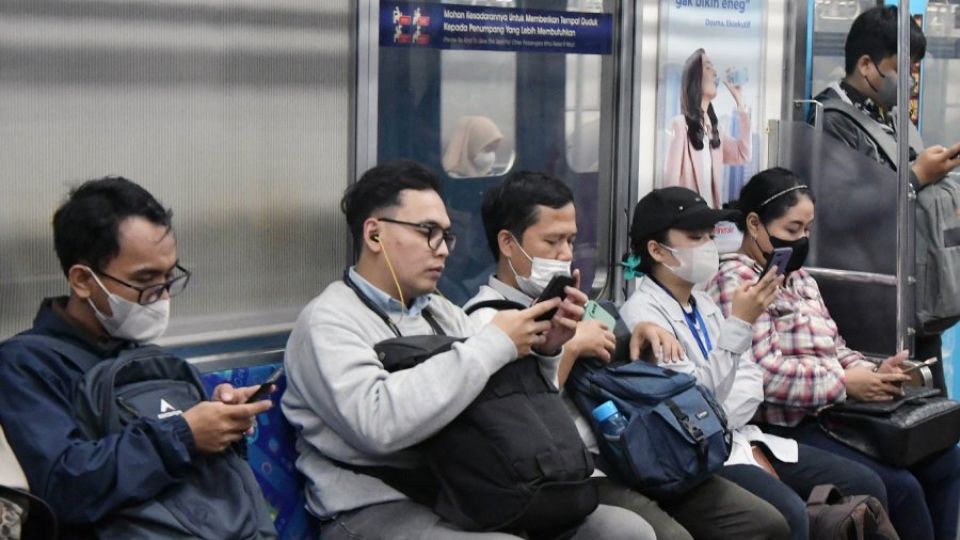December 7, 2023
JAKARTA – The Health Ministry has urged greater vigilance amid a recent uptick in cases of new COVID-19 subvariants, both in the country and around the globe, while reassuring the public on the availability of vaccines.
Health Ministry spokesperson Siti Nadia Tarmizi told The Jakarta Post on Tuesday that a the number of novel coronavirus infections had risen “from previously only 10 to 20 cases weekly to 276 cases last week”.
EG.5, informally dubbed “Eris”, and EG.2 had become the dominant Omicron subvariants in Indonesia, Siti added, but did not say how many confirmed cases had been linked to these subvariants.
EG.5 infections show symptoms similar to those of other subvariants, including fever, fatigue, runny nose and sore throat.
In August, the World Health Organization (WHO) classified the Omicron subvariant EG.5 and its sublineages HK.3 and HV.1 as variants of interest (VOIs).
A VOI is less serious than a variant of concern (VOC) on the United Nations health agency’s classification system, and generally reflects a subvariant’s relative prevalence compared to others circulating in an area or region and its potential epidemiological changes “to suggest an emerging risk to global public health”.
The WHO said there was no evidence so far that EG.5 caused more severe symptoms, but noted that more comprehensive risk evaluation on emerging EG.5 sublineages like HK.3 and HV.1 was needed.
Siti advised people who were not feeling well as well as the elderly to wear masks, and that anyone with symptoms should see a doctor or other health worker.
She also emphasized that the country had a sufficient supply of vaccines and encouraged everyone to complete their two-dose vaccination against COVID-19, though she did not mention the vaccines’ efficacy against the new subvariants.
The ministry also urged people “to postpone traveling to countries currently experiencing a surge in COVID cases”, Siti said.
Read also: Govt to stop paying for COVID-19 treatments, vaccines on Sept. 1
Since it was first reported to the WHO in February, EG.5 has spread to more than 90 countries including China, the United States and Singapore. The Omicron subvariant currently makes up slightly over half of the COVID-19 variants circulating globally due to its immune escape properties, or its ability to evade the human body’s immune system.
Singaporean health authorities advised vigilance last week after the island state saw the number of estimated COVID-19 infections double to some 22,000 in the week from Nov. 19 to 25, compared to an estimated 10,700 cases the week prior.
EG.5 and its sublineage HK.3 made up around 70 percent of the cases that were sequenced.
Singapore’s Health Ministry said in its advisory on Saturday that the sudden increase could be “due to a number of factors, including the year-end travel season and waning population immunity”.
Malaysia recorded a 57 percent increase in its weekly caseload during the final week of November, from some 2,300 cases the previous week, The Star reported on Monday, with the majority of cases experiencing only mild symptoms.
Though it was unclear if EG.5 had been detected in the neighboring country, it recorded two cases of BA.2.86, another new Omicron subvariant classified as a VOI.
Malaysian health authorities said the situation was under control.
Read also: New COVID variant not a ‘concern’, govt says
Indonesia detected its first EG.5 infection in June, the same month that President Joko “Jokowi” Widodo lifted the COVID-19 health emergency status and all remaining health restrictions that had been in place for more than three years.
Public health expert Tjandra Yoga Aditama said the country’s COVID-19 caseload remained under control ahead of the year-end holidays, and that the indications so far did not necessitate a travel ban.
Still, he called on the public to keep up-to-date on COVID-19 information.
“The government also needs to improve surveillance. We need to have complete data on the number of cases across [all] provinces every day,” he told the Post on Tuesday. (alf)


